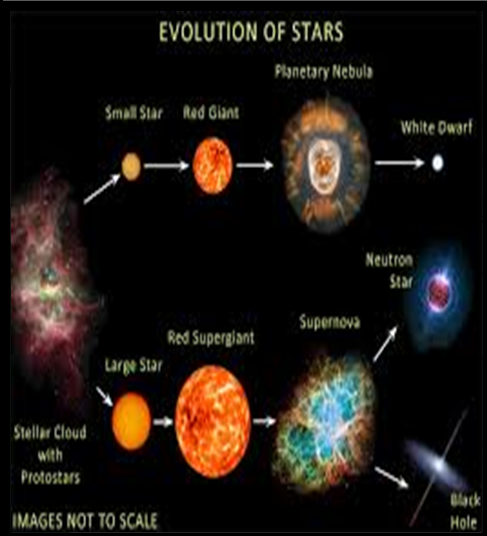ENERGY BURST ALTERS EARTH’S IONOSPHERE
Why in the News ?
- Around two billion years ago, a distant galaxy witnessed a colossal supernova explosion, resulting in a powerful burst of gamma rays – the most energetic waves in the electromagnetic spectrum.
- Last year, these waves reached Earth, causing a noteworthy disturbance in the planet’s ionosphere.
Source: Socratic
| Ionosphere
· The ionosphere is a region of Earth’s upper atmosphere, located 50-950 km above the surface. · Comprising electrically charged gases called plasma. · It forms a crucial boundary between the vacuum of space and the lower atmosphere. |
Gamma-Ray Impact:
- Origin and Arrival: The gamma rays, emanating from the supernova burst, finally reached Earth on October 9, 2022.
- Detection: European Space Agency’s (ESA) Integral space observatory and satellites near Earth detected the gamma-ray burst, marking it as the most potent observed burst to date.
Ionosphere Response:
- Duration of Impact: The gamma rays influenced Earth’s ionosphere for approximately 13 minutes.
- Electric Field Variation: Impacting the ionosphere’s electric field, the burst was akin to effects seen during solar flare events, causing a strong disturbance.
Earth’s Ionosphere:
- Position and Role: Situated 50-950 km above the Earth’s surface, the ionosphere acts as a boundary between the vacuum of space and Earth’s lower atmosphere.
- Influence on Earth: Changes in the ionosphere’s magnetic and electrical conditions, as observed during this event, have implications for space weather on Earth.
Global Effects and Lightning Detection:
- Global Reach: The gamma-ray burst’s impact was global, detected even by lightning detectors in India.
- Extended Disturbance: The ionosphere remained disturbed for several hours due to the gamma-ray influence.
Potential Implications:
- Solar Flare Comparison: While resembling the effects of a solar flare event, the distant gamma-ray burst showcased the Earth’s susceptibility to faraway cosmic events.
- Surface Impact: Although this specific burst did not pose harm, it raised concerns about potential hazards if a similar event occurred closer within the Milky Way, emphasizing the ionosphere’s role in protecting life from harmful ultraviolet radiation.
While distant cosmic events like gamma-ray bursts are not uncommon, their influence on Earth’s ionosphere provides valuable insights into space-weather interactions.

 Source: Socratic
Source: Socratic

